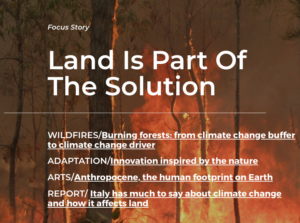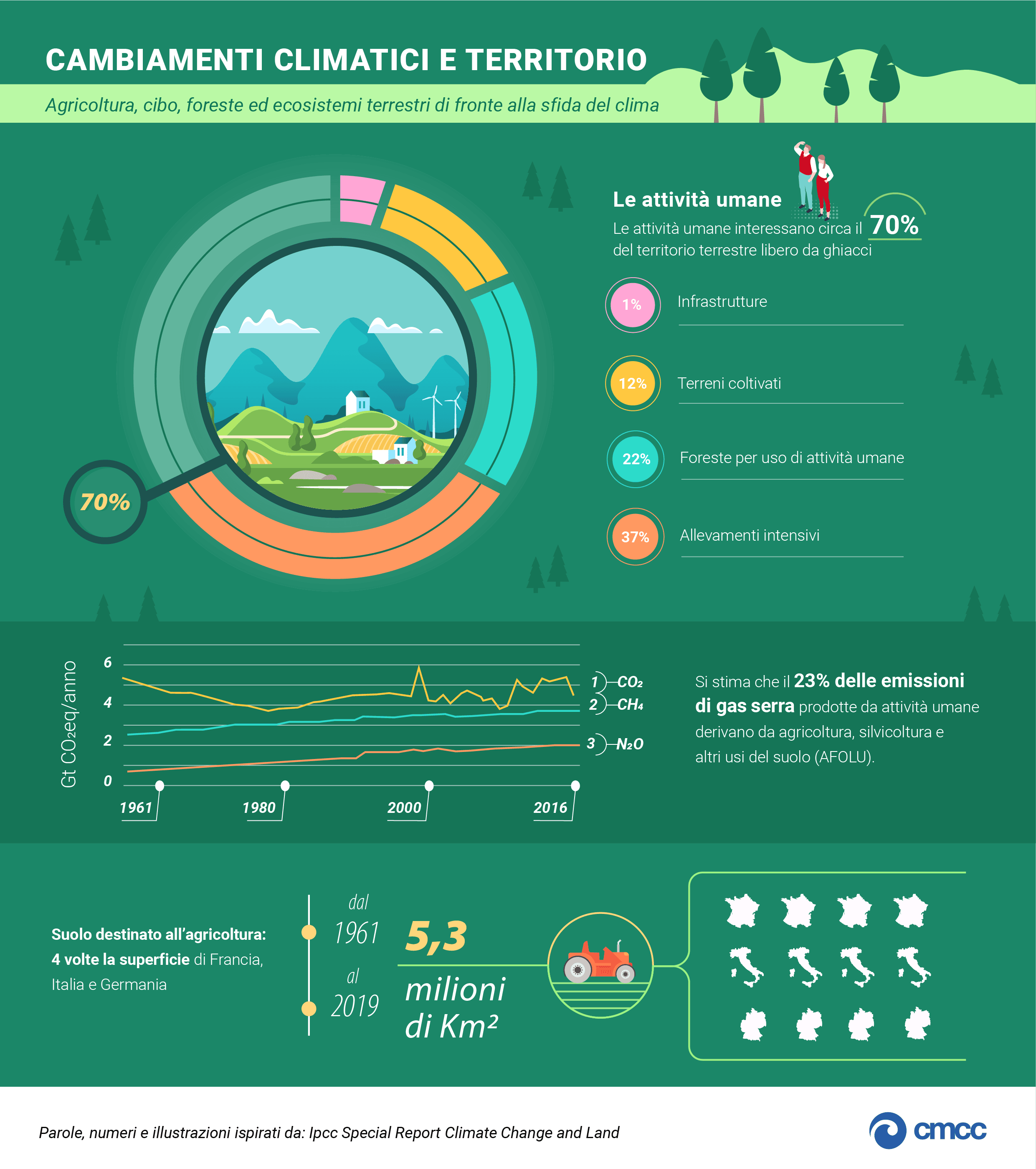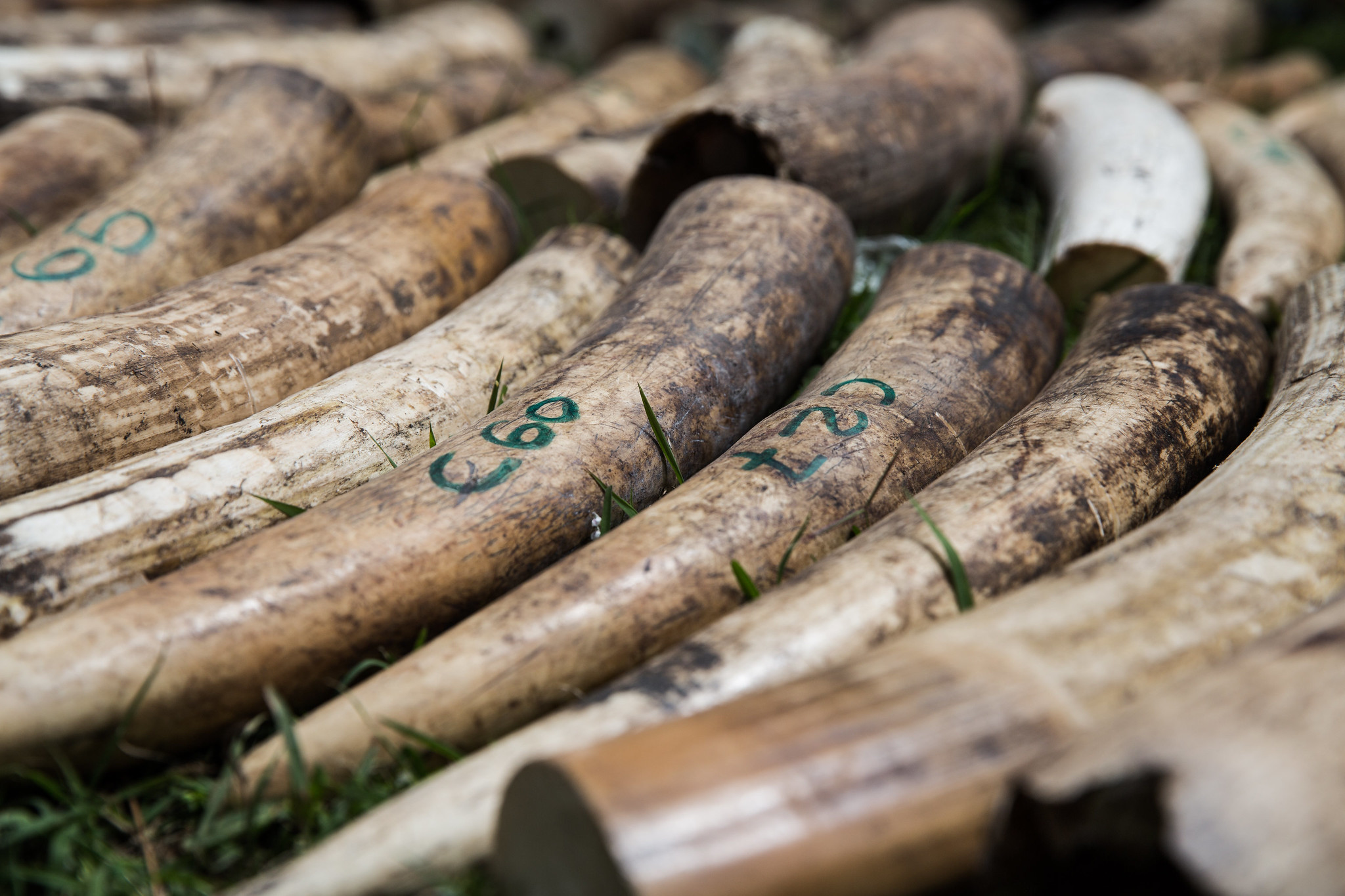
There is good news and bad news for Italy in the latest IPCC report on Climate Change and Land. “The bad news is that Italy is at the center of the Mediterranean region, one of the areas most affected by the significant impacts of extreme events. The good news is that our country can give the world positive signals”.
The words are of Riccardo Valentini (CMCC Foundation, Euro-Mediterranean Center on Climate Change and Università della Tuscia), the only Italian author of the IPCC Special Report on Climate Change and Land, at the presentation of the report to the Italian community. Other Italian experts who participated in the presentation are Donatella Spano (CMCC and Università di Sassari) and Lucia Perugini (CMCC, division for the study of agriculture, forests and ecosystem services).
“For the first time – explained Valentini – the report refers to sustainable agriculture as a solution to climate change. In Italy we have much creativity and a high quality productive sector, with many young people. Furthermore, we can improve in terms of education on nutrition. But we must act quickly: science must have an impact on society and politics has a fundamental role in this.”
“We have what it takes both in mitigation capacity and in adaptation plans”, Donatella Spano commented. Prof. Spano has been following the definition of the Italian climate change adaptation Plan closely. “Now – she said – it is a question of finding ways to make the scientific community’s recommendations operational.”
Contents, infographics and a video of the presentation are available on the IPCC Point for Italy website.
A highly competitive sector
 During the presentation, the three scientists stressed that we are used to thinking of CO2 emissions only in relation to energy production and transport. Nevertheless, it is important to underline that sectors linked to the territory (what experts call AFOLU, which includes agriculture, forestry and other land uses) account for 23% of total GHG emissions (up to 37% if emissions associated with pre- and post-production activities in the global food system are included). This means that human activities exert enormous pressure on the planet using 73% of land (excluding the cryosphere).
During the presentation, the three scientists stressed that we are used to thinking of CO2 emissions only in relation to energy production and transport. Nevertheless, it is important to underline that sectors linked to the territory (what experts call AFOLU, which includes agriculture, forestry and other land uses) account for 23% of total GHG emissions (up to 37% if emissions associated with pre- and post-production activities in the global food system are included). This means that human activities exert enormous pressure on the planet using 73% of land (excluding the cryosphere).
The issue is very complex. On the one hand, solutions are needed to reduce CO2 concentration in the atmosphere, and sustainable reforestation can increase Earth’s carbon sequestration capacity. On the other, land is subject to high competition between different activities. For example, land used for forests or biofuel production should not affect food production negatively.
The food system
Food – how we produce, consume and waste food – is a very important part of the report. Since 1961, food calories per capita have increased by about one third, water resources for irrigation have increased by 100%, and the use of fertilizers has increased by 800%.
In this context, climatic factors contribute to stressing the system, with negative influences, at a global level, on food security (the state of having reliable access to a sufficient quantity of affordable, nutritious food).
Solutions
The challenges posed by land-use can be tackled with a series of integrated actions.
Land management includes the agricultural sector (increasing agricultural productivity in a sustainable manner), forest management (deforestation reduction and sustainable forest management, avoiding competition with the agricultural sector), and soil management (as carbon stored in the soil is twice that which is stored in the atmosphere).
The food system, novelty of this report, is responsible for 37% of global emissions, one third of which due to food waste. Eating habits can have an important impact on greenhouse gas emissions. A dietary shift away from meat (particularly red meat) and dairy products, to the levels recommended by the World Health Organization, is a win-win solution for both the climate and our heath. Among various diets considered by IPCC scientists, the Mediterranean diet is one of the most sustainable.
The webinar Climate, land, and ecosystems: the contents of the IPCC Special Report was held on September 10, 2019 including the following speeches:
Climate change and land: the IPCC Special Report -Riccardo VALENTINI – CMCC Foundation, Università della Tuscia, Lead Author of Chapter 1 of the IPCC Report
Climate change and food system – Donatella SPANO – Università di Sassari, CMCC Foundation
Desertification, adaptation and mitigation: integrated actions – Lucia PERUGINI – CMCC Foundation, Division Impacts on Agriculture, Forests and Ecosystem Services
Contents, infographics and a video of the presentation are available on the IPCC Point for Italy website.






